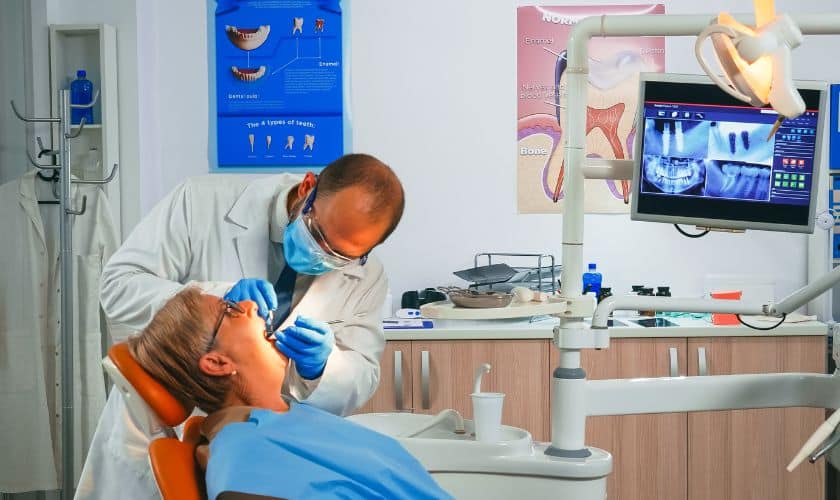Your smile is one of the first things people notice about you, and dental crowns can help improve it. However, like any other dental procedure, there are potential problems that come with getting a crown. From discomfort to decay under the crown, these issues can cause serious headaches. But don't worry! In this blog post, we'll explore some common dental crown problems and how to avoid them so you can maintain your beautiful smile for years to come. So let's dive in!
What is a Dental Crown?
A dental crown is a tooth-shaped "cap" that is placed over a tooth to cover the tooth and restore its shape and size. Crowns can be made from metal, porcelain, or ceramic.
Dental crowns are used to:
Restore a broken tooth
Protect a weak tooth from breaking
Cover a dental implant
Cover a discolored or misshapen tooth
Common Dental Crown Problems
When a dental crown is first placed, it usually takes a little time to get used to. There may be some sensitivity to hot and cold temperatures as well as some increased sensitivity to biting pressure. These symptoms should go away within a few weeks. If they do not, please contact your dentist.
The most common problem we see with dental crowns is that they come loose. This can happen for a number of reasons:
1. You did not wait long enough for the tooth to heal before getting the crown. It is important to wait at least 6 weeks after the tooth has been prepared before getting a dental crown.
2. The dental cement used to hold the crown in place does not bond well with the tooth or the crown itself.
3. You are not taking care of your teeth properly. Brushing and flossing twice a day is essential for keeping your teeth and gums healthy. Be sure to use a soft-bristled toothbrush and avoid brushing too hard.
4. You are clenching or grinding your teeth (bruxism). This can put excessive force on the dental crown and cause it to become loose over time. If you think you may be clenching or grinding your teeth at night, please tell your dentist so they can make an appropriate treatment plan.
How to Avoid Dental Crown Problems
There are a few things you can do to avoid having dental crown problems. First, make sure to brush and floss your teeth regularly. This will help keep your natural teeth healthy and prevent decay. Secondly, see your dentist for regular checkups and cleanings. This will allow your dentist to catch any issues early on and prevent them from getting worse. Finally, be careful with what you eat and drink. Avoid hard or sticky foods that can damage your crowns, and limit sugary drinks like soda that can cause cavities. By following these tips, you can help avoid dental crown problems and keep your smile healthy and beautiful for years to come!
Conclusion
Dental crowns can be a great way to restore the function and appearance of your teeth. However, like any dental procedure, they come with their own set of risks. By being aware of these common problems and taking steps to avoid them, you can ensure that your dental crown stays in top condition for as long as possible. With this knowledge in mind, you'll be able to confidently enjoy the benefits of having a dental crown without worrying about any potential issues.
FAQs
What are the most common dental crown problems?
The most common dental crown problems include chipping, cracking, and wear. Crowns can also become loose over time.
How can I avoid these problems?
There are several things you can do to avoid dental crown problems. First, be sure to choose a high-quality crown made from durable material. Second, have your dentist check your crown regularly to ensure it is fitting properly and is not damaged. Finally, practice good oral hygiene habits including brushing and flossing regularly and visiting your dentist for regular cleanings and checkups


